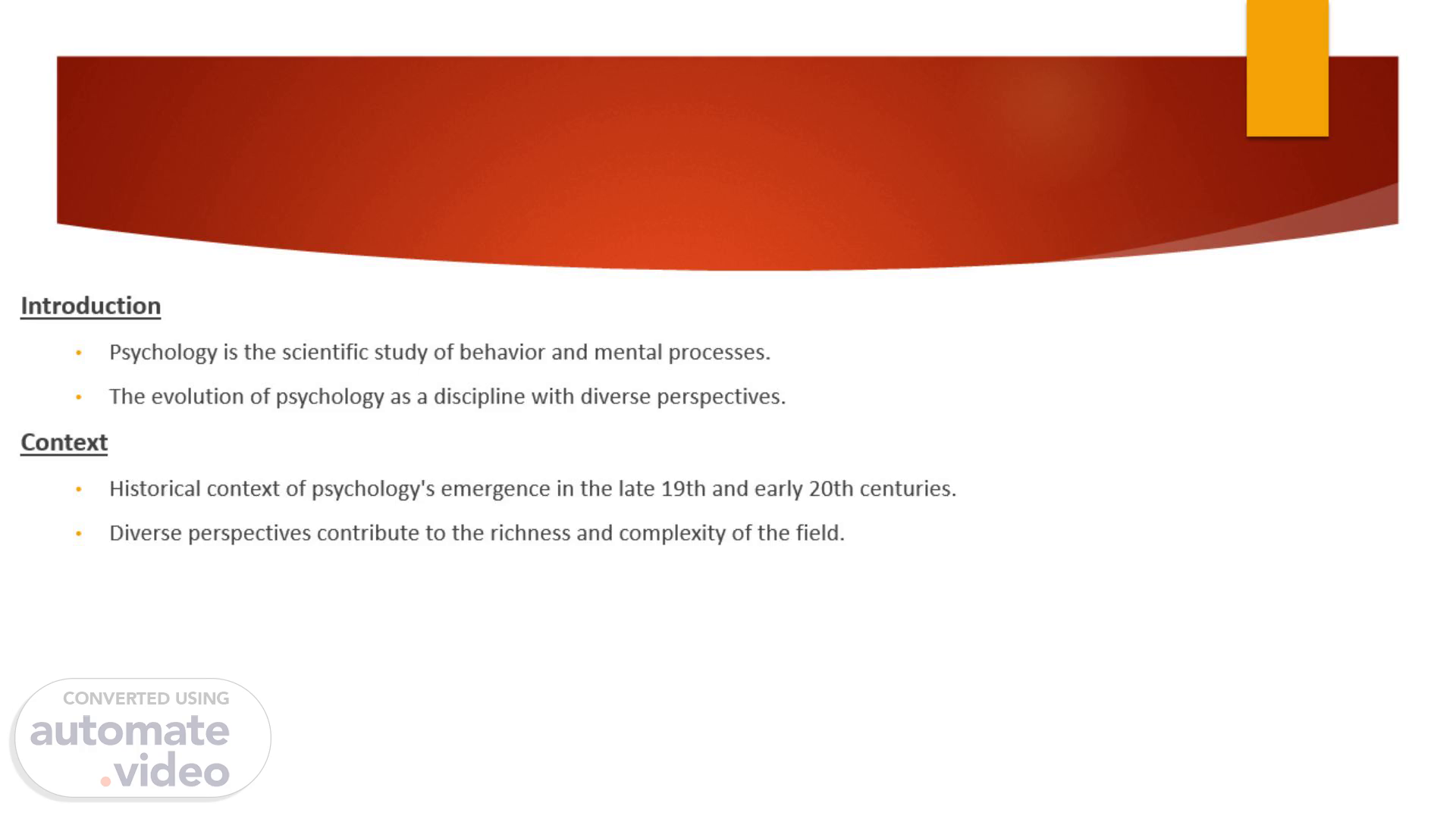
Page 1 (0s)
[Audio] Welcome to our exploration of the foundations of modern psychology. Psychology, as the scientific study of behavior and mental processes, has evolved through the contributions of various schools of thought. Today, we'll delve into three major perspectives that have shaped the field significantly..
Page 2 (20s)
[Audio] Our first stop is Behaviorism. This perspective, championed by figures like John B. Watson and B.F. Skinner, centers on observable behavior and the influence of the environment. Through classic experiments like the "Little Albert" study, Watson demonstrated the principles of classical conditioning. Skinner, on the other hand, introduced the concept of operant conditioning, emphasizing the role of rewards and punishments in shaping behavior. However, behaviorism has its critics, who argue that it oversimplifies human behavior by neglecting internal mental processes and individual differences..
Page 3 (1m 1s)
[Audio] Now, let's delve into Psychoanalysis, pioneered by Sigmund Freud and further developed by Carl Jung. Psychoanalysis explores the unconscious mind, emphasizing the role of hidden desires, conflicts, and early experiences. Freud's model of the mind and concepts like the Oedipus complex are central to this perspective. Techniques such as dream analysis and free association are used to unearth unconscious material. Yet, psychoanalysis faces criticism for its lack of empirical evidence and the subjective nature of its interpretations..
Page 4 (1m 40s)
[Audio] Our journey continues with Cognitive Psychology, a perspective that focuses on mental processes like perception, memory, and problem-solving. Ulric Neisser and Jean Piaget are key figures in this field. Cognitive psychology bridges the gap between behaviorism and psychoanalysis, emphasizing the study of internal mental processes and applying experimental methods to understand cognitive phenomena. While contributing significantly to modern psychology, cognitive psychology is not without challenges, such as the difficulty of studying internal processes directly..
Page 5 (2m 17s)
[Audio] In conclusion, we've explored three major schools of thought - Behaviorism, Psychoanalysis, and Cognitive Psychology. Each provides a unique lens through which we understand human behavior and cognition. The synthesis of these perspectives is crucial. Modern psychologists often adopt an integrative approach, recognizing the dynamic interplay between observable behavior, unconscious processes, and mental functions. As we close, remember that psychology is a constantly evolving field. Embrace the diverse perspectives, contribute to ongoing research, and be part of the exciting journey to deepen our understanding of the human mind. Thank you for joining us on this exploration of psychology's rich landscape..